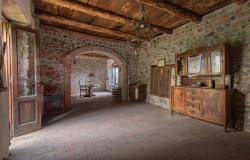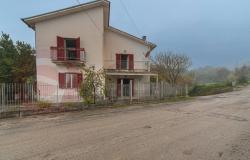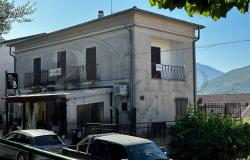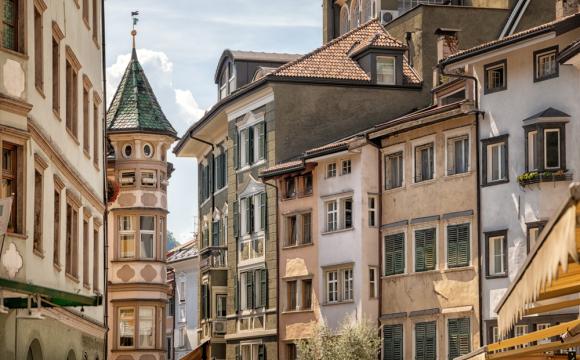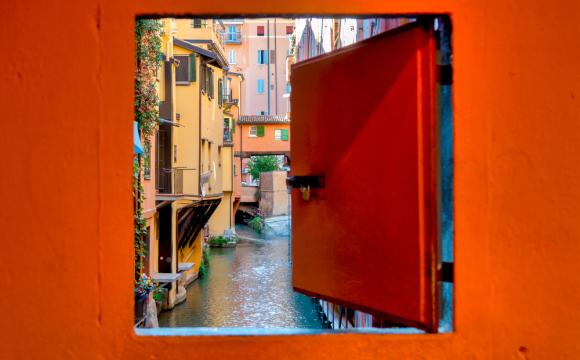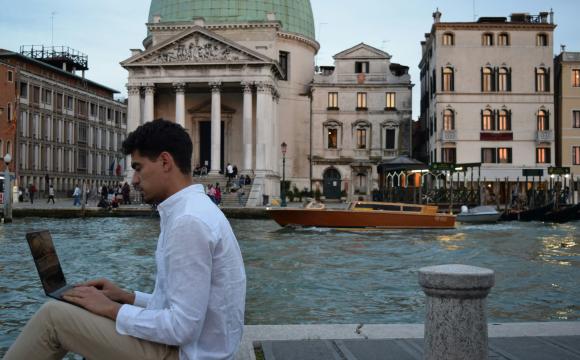It is hardly what you’d expect cloistered nuns to gaze upon during the course of their silent lives. Bold scenes of boar hunting, bowling, dancing, even a Carnival revel come alive in a riot of colours on the tiled panels that decorate the cloister garden of the Santa Chiara Monastery in Naples.
I wonder whether this really was what abbess Ippolita Carmignani had in mind when she commissioned landscape architect Domenico Antonio Vaccaro in 1739 to create a cloister garden suited to “the decorum of noble ladies.” But then this is Naples, a place of blazing sunshine, music and joie de vivre, whose vibrancy breaks into even the most reclusive corners.
Vaccaro, who had a reputation for being innovative and was a darling of the Neapolitan aristocracy, chose a strictly geometric design for the garden, but sneaked in the spark and frivolity of 18th century Naples by decorating pillars and benches with hundreds of tin-glazed earthenware tiles, known locally as majolica.
An exquisite motif of vines, lemons, oranges and figs, bright against a pale blue background, climbs up the pillars in a subtle play over the garden’s scheme. The bench panels, by contrast, are a snapshot of everyday rural life in the 1700s, depicting dances such as the tarantella, or even newly popular games like cricket, in a vivid palette of yellow, oranges and greens.
Around the benches, four parterres bloom with roses, conifers, lemon and orange trees, echoing the colours of the majolica panels against the pale white of two marble fountains and the cerulean blue of the sky.
Because the Santa Chiara nuns vowed to live in complete seclusion, very few people got to see the cloister garden after it was created, and rumours of its fabled beauty flooded Naples for nearly two centuries—until a quirk of destiny ensured it could open to the public. In 1924, the nuns swapped convents with the Franciscan friars next door. The friars, who were not bound by the same vows, first allowed in the philosophers, intellectuals and beau monde of early 20th century Naples, then, from the 1970s, the wider public.
I consider myself lucky that they did.
The cloister garden of the Santa Chiara Monastery, in Via Santa Chiara 49C, is open every day from 9am to 1pm and from 2.30pm to 5.30pm (www.santachiara.info).
Cloister Garden of the Santa Chiara Monastery, Naples, Campania
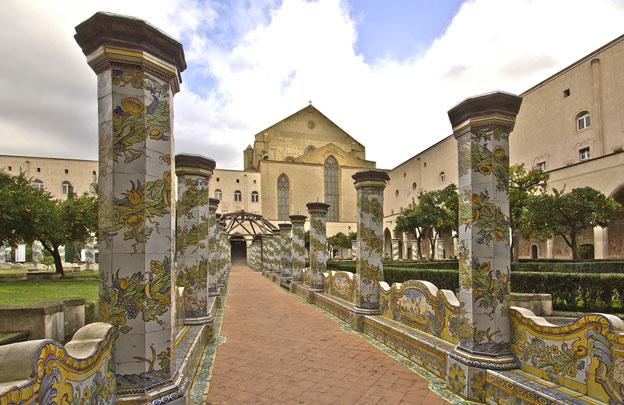
Location
You may also be interested in...
Latest property in Campania
615 m²
0 Bedrooms
185000
362 m²
3 Bedrooms
379000
217 m²
3 Bedrooms
108000
574 m²
4 Bedrooms
550000
482 m²
9 Bedrooms
750000
96 m²
2 Bedrooms
58000
